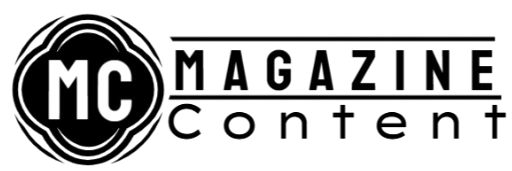Introduction to 185.63.253.2pp and Its Role in Proxy Networks
Ever stumbled upon the IP address 185.63.253.2pp while managing your website or analyzing traffic logs and wondered, “Is this just another visitor or something more?” IPs like this one often raise eyebrows because they are tied to proxies or bot activities. Understanding what 185.63.253.2pp represents is crucial in today’s internet landscape where online security, privacy, and automation intersect in complex ways.
This article dives deep into the world of proxies, bots, and how to detect them, using the example of 185.63.253.2pp as a gateway to broader insights. Let’s unravel this together.
Understanding Proxies
What is a Proxy Server?
At its core, a proxy acts like a middleman between your device and the internet. Instead of your computer directly contacting a website, the request goes through the proxy server first. This hides your real IP address and can offer anonymity, access to geo-restricted content, or improve performance.
Types of Proxies
- HTTP/HTTPS Proxies: Handle web traffic, masking your IP for browsers.
- SOCKS Proxies: More versatile, working with various types of internet traffic.
- Residential Proxies: Use IPs assigned to real residential devices, harder to detect.
- Data Center Proxies: Faster but easier to flag, sourced from data centers.
Why Do People Use Proxies?
From safeguarding privacy to bypassing regional blocks or enabling data scraping, proxies serve many purposes. But they also provide a playground for bots and sometimes malicious users, making proxy detection a critical task.
The Relationship Between 185.63.253.2pp and Proxy Usage
Is 185.63.253.2pp a Proxy IP?
The IP format “185.63.253.2pp” is a stylized notation often referencing a proxy or anonymized IP. While the exact “pp” suffix might relate to a specific proxy provider or tagging convention, IPs in the 185.63.x.x range are commonly associated with proxy services or data centers.
Common Use Cases Linked with 185.63.253.2pp
- Web scraping
- Ad fraud
- Automated testing
- Bypassing geo-blocks
Risks and Benefits Associated with Proxy IPs Like 185.63.253.2pp
Proxies like this offer privacy and flexibility but can also mask malicious activities such as credential stuffing or spam, which makes them double-edged swords in cybersecurity.
What Are Bots and How Do They Use Proxy IPs?
Defining Bots in the Digital World
Bots are automated programs that perform tasks online. Some bots are helpful (like search engine crawlers), while others cause trouble by flooding servers or stealing data.
How Bots Utilize Proxies Such as 185.63.253.2pp
Bots often rotate through proxies like 185.63.253.2pp to avoid IP bans, spreading out requests to appear as many users rather than one attacker.
Good Bots vs Bad Bots
- Good bots: Search engines, monitoring tools
- Bad bots: Scrapers, spammers, click fraud agents
YOU MUST READ: icryptoai.com Innovation: Leading the Future with AI-Driven Blockchain Solutions
Examples of Bot Activity Through Proxy IPs
- Scraping: Collecting data from websites without permission.
- Automated Registrations: Creating fake accounts to exploit services.
- Spam and Fraud: Sending unsolicited content or performing fraudulent transactions.
Detecting Proxies and Bots Associated with IPs Like 185.63.253.2pp
Key Indicators of Proxy IPs
- IP belongs to known proxy ranges or VPN providers
- IP reputation scores flag suspicious activity
- Unusual geolocation for typical user base
Behavioral Patterns of Bots
- High request rates in short timeframes
- Repetitive access to specific URLs
- Irregular browsing behavior not typical of humans
Tools and Techniques for Detection
- IP blacklist services
- CAPTCHA challenges
- Behavioral analytics platforms
Challenges in Proxy and Bot Detection
False Positives
Blocking legitimate users mistaken as bots or proxies.
Evasion Tactics Used by Bots and Proxies
- Proxy rotation
- User agent spoofing
- Human-like interaction simulation
Continuous Adaptation of Detection Methods
Security teams need to stay ahead by constantly updating detection logic.
YOU MUST READ: 855-622-6743: Uncover the Truth Behind This Mysterious Call
Practical Tips to Detect and Manage Traffic from IP 185.63.253.2pp and Similar Proxies
IP Reputation Databases
Use databases like IPQualityScore or AbuseIPDB to check the trustworthiness of IPs.
Rate Limiting and CAPTCHA
Limit how many requests an IP can make and require CAPTCHAs to block bots.
Device Fingerprinting
Analyze browser and device characteristics to spot automation.
Machine Learning Approaches
Use AI to detect subtle patterns that indicate bot behavior.
Legal and Ethical Considerations
Privacy Concerns
Balancing user privacy while monitoring suspicious activity is key.
Compliance with Data Protection Regulations
Be mindful of GDPR, CCPA, and other laws when collecting user data.
Balancing Security and User Experience
Avoid harsh restrictions that could alienate real users.
Case Study: How 185.63.253.2pp Was Identified and Managed in a Security Incident
Scenario Overview
A website noticed unusual spikes in traffic coming from 185.63.253.2pp and similar IPs.
Steps Taken to Detect Proxy and Bot Behavior
- Cross-referenced IP with proxy databases
- Implemented behavioral analytics
- Introduced multi-layered bot mitigation (CAPTCHA, rate limits)
Outcome and Lessons Learned
Successfully reduced malicious traffic while maintaining access for genuine users.
Future Trends in Proxy and Bot Detection
Advances in AI and Behavioral Analytics
AI-powered detection will become the norm to outsmart increasingly sophisticated bots.
The Evolution of Proxy Networks
Proxy providers may offer even more anonymity, challenging detection further.
Predictions for IP-Based Security
IP reputation will remain a foundational element but must integrate with broader security frameworks.
Conclusion
Understanding IPs like 185.63.253.2pp opens a window into the complex ecosystem of proxies and bots on the internet. These technologies offer privacy and utility but also present challenges for security. With vigilant monitoring, smart detection methods, and ethical considerations, businesses can effectively manage proxy and bot traffic while safeguarding legitimate users. Remember, staying informed and proactive is your best defense in the ever-evolving digital battleground.
YOU MUST READ: viloggers com: Ultimate Platform for Vloggers to Grow & Monetize
FAQs
What exactly does the “pp” in 185.63.253.2pp mean?
The “pp” is often a tag or shorthand used in certain contexts to denote a proxy or particular IP range; it isn’t part of the standard IP address format but may signify a proxy provider or specific categorization.
Can proxies like 185.63.253.2pp be trusted?
It depends on the use case. Proxies offer privacy and useful functions but can also be abused for malicious activities, so trustworthiness varies widely.
How do bots avoid detection when using proxies?
Bots use proxy rotation, mimic human browsing patterns, and manipulate headers to evade detection.
Are there free tools to check if an IP is a proxy?
Yes, tools like IPQualityScore, AbuseIPDB, and Project Honey Pot offer free or freemium proxy and IP reputation checks.
How often should IP reputations be updated for security?
IP reputation databases are updated continuously; regular daily or weekly checks are recommended for maintaining security.






